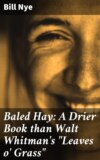Kitabı oku: «Comic History of England», sayfa 5
CHAPTER XII.
MAGNA CHARTA INTRODUCED: SLIGHT DIFFICULTIES ENCOUNTERED IN OVERCOMING AN UNPOPULAR AND UNREASONABLE PREJUDICE
Philip called the miserable monarch to account for the death of Arthur, and, as a result, John lost his French possessions. Hence the weak and wicked son of Henry Plantagenet, since called Lackland, ceased to be a tax-payer in France, and proved to a curious world that a court fool in his household was superfluous.
John now became mixed up in a fracas with the Roman pontiff, who would have been justified in giving him a Roman punch. Why he did not, no Roman knows.
On the death of the Archbishop of Canterbury in 1205, Stephen Langton was elected to the place, with a good salary and use of the rectory. John refused to confirm the appointment, whereat Innocent III., the pontiff, closed the churches and declared a general lock-out. People were denied Christian burial in 1208, and John was excommunicated in 1209.
Philip united with the Pope, and together they raised the temperature for John so that he yielded to the Roman pontiff, and in 1213 agreed to pay him a comfortable tribute. The French king attempted to conquer England, but was defeated in a great naval battle in the harbor of Damme. Philip afterwards admitted that the English were not conquered by a Damme site; but the Pope absolved him for two dollars.
[Illustration: KING JOHN SIGNS THE MAGNA CHARTA.]
It was now decided by the royal subjects that John should be still further restrained, as he had disgraced his nation and soiled his ermine. So the barons raised an army, took London, and at Runnymede, June 15, 1215, compelled John to sign the famous Magna Charta, giving his subjects many additional rights to the use of the climate, and so forth, which they had not known before.
Among other things the right of trial by his peers was granted to the freeman; and so, out of the mental and moral chaos and general strabismus of royal justice, everlasting truth and human rights arose.
Scarcely was the ink dry on Magna Charta, and hardly had the king returned his tongue to its place after signing the instrument, when he began to organize an army of foreign soldiers, with which he laid waste with fire and sword the better part of "Merrie Englande."
But the barons called on Philip, the general salaried Peacemaker Plenipotentiary, who sent his son Louis with an army to overtake John and punish him severely. The king was overtaken by the tide and lost all his luggage, treasure, hat-box, dress-suit case, return ticket, annual address, shoot-guns, stab-knives, rolling stock, and catapults, together with a fine flock of battering-rams.
This loss brought on a fever, of which he died, in 1216 A.D., after eighteen years of reign and wind.
A good execrator could here pause a few weeks and do well.
History holds but few such characters as John, who was not successful even in crime. He may be regarded roughly as the royal poultice who brought matters to a head in England, and who, by means of his treachery, cowardice, and phenomenal villany, acted as a counter-irritant upon the malarial surface of the body politic.
After the death of John, the Earl of Pembroke, who was Marshal of England, caused Henry, the nine-year-old son of the late king, to be promptly crowned.
Pembroke was chosen protector, and so served till 1219, when he died, and was succeeded by Hubert de Burgh. Louis, with the French forces, had been defeated and driven back home, so peace followed.
Henry III. was a weak king, as is too well known, but was kind. He behaved well enough till about 1231, when he began to ill-treat de Burgh.
He became subservient to the French element and his wife's relatives from Provence (pronounced Provongs). He imported officials by the score, and Eleanor's family never released their hold upon the public teat night or day. They would cry bitterly if deprived of same even for a moment. This was about the year 1236.
[Illustration: THE PROMPT CORONATION OF THE NINE-YEAR-OLD KING HENRY.]
Besides this, and feeling that more hot water was necessary to keep up a ruddy glow, the king was held tightly beneath the thumb of the Pope. Thus Italy claimed and secured the fat official positions in the church. The pontiff gave Henry the crown of Sicily with a C.O.D. on it, which Henry could not raise without the assistance of Parliament. Parliament did not like this, and the barons called upon him one evening with concealed brass knuckles and things, and compelled him to once more comply with the regulations of Magna Charta, which promise he rigidly adhered to until the committee had turned the first corner outside the royal lawn.
[Illustration: THE BARONS COMPELLED HENRY III. TO PROMISE COMPLIANCE WITH THE MAGNA CHARTA.]
Possessing peculiar gifts as a versatile liar and boneless coward, and being entirely free from the milk of human kindness or bowels of compassion, his remains were eagerly sought after and yearned for by scientists long before he decided to abandon them.
Again, in 1258, he was required to submit to the requests of the barons; but they required too much this time, and a civil war followed.
Simon de Montfort, Earl of Leicester, at the head of the rebellious barons, won a victory over the king in 1264, and took the monarch and his son Edward prisoners.
Leicester now ruled the kingdom, and not only called an extra session of Parliament, but in 1265 admitted representatives of the towns and boroughs, thereby instituting the House of Commons, where self-made men might sit on the small of the back with their hats on and cry "Hear! Hear!"
The House of Commons is regarded as the bulwark of civil and political liberty, and when under good police regulations is still a great boon.
Prince Edward escaped from jail and organized an army, which in 1265 defeated the rebels, and Leicester and his son were slain. The wicked soldiery wreaked their vengeance upon the body of the fallen man, for they took great pride in their prowess as wreakers; but in the hearts of the people Leicester was regarded as a martyr to their cause.
Henry III. was now securely seated once more upon his rather restless throne, and as Edward had been a good boy for some time, his father gave him permission to visit the Holy Land, in 1270, with Louis of France, who also wished to go to Jerusalem and take advantage of the low Jewish clothing market. In 1272 Henry died, during the absence of his son, after fifty-six years of vacillation and timidity. He was the kind of king who would sit up half of the night trying to decide which boot to pull off first, and then, with a deep-drawn sigh, go to bed with them on.
Edward, surnamed "Longshanks," having collected many antiques, and cut up a few also, returned and took charge of the throne. He found England prosperous and the Normans and Saxons now thoroughly united and homogeneous. Edward did not hurry home as some would have done, but sent word to have his father's funeral made as cheery as possible, and remained over a year in Italy and France. He was crowned in 1274. In a short time, however, he had trouble with the Welsh, and in 1282, in battle, the Welsh prince became somehow entangled with his own name so that he tripped and fell, and before he could recover his feet was slain.
[Illustration: LONGSHANKS RECEIVES TIDINGS OF HIS FATHER'S DEATH.]
Wales having been annexed to the crown, Edward's son was vested with its government, and the heir-apparent has ever since been called the Prince of Wales. It is a good position, but becomes irksome after fifty or sixty years, it is said.
[Illustration: CONQUEST OF WALES.]
CHAPTER XIII.
FURTHER DISAGREEMENTS RECORDED: ILLUSTRATING THE AMIABILITY OF THE JEW AND THE PERVERSITY OF THE SCOT
In 1278 the Jews, to the number of two hundred and eighty, were hanged for having in their possession clipped coins. Shortly afterwards all the Jews in England were imprisoned. Whenever times were hard the Jews were imprisoned, and on one job lot alone twelve thousand pounds were realized in ransom. And still the Jews are not yet considered as among the redeemed. In 1290 they were all banished from the kingdom and their property seized by the crown. This seizure of real estate turned the attention of the Jews to the use of diamonds as an investment. For four hundred years the Jews were not permitted to return to England.
Scotch wars were kept up during the rest of Edward's reign; but in 1291, with great reluctance, Scotland submitted, and Baliol, whose trouble with Bruce had been settled in favor of the former, was placed upon the throne. But the king was overbearing to Baliol, insomuch that the Scotch joined with the Normans in war with England, which resulted, in 1293, in the destruction of the Norman navy.
Philip then subpoenaed Edward, as Duke of Guienne, to show cause why he should not pay damages for the loss of the navy, which could not be replaced for less than twenty pounds, and finally wheedled Edward out of the duchy.
Philip maintained a secret understanding with Baliol, however, and Edward called a parliament, founded upon the great principle that "what concerns all should be approved by all." This was in 1295; and on this declaration, so far as successful government is concerned, hang all the law and the profits.
The following year Edward marched into Scotland, where he captured Baliol and sent him to France, where he died, in boundless obscurity, in 1297. Baliol was succeeded by the brave William Wallace, who won a great battle at Stirling, but was afterwards defeated entirely at Falkirk, and in 1305 was executed in London by request.
But the Scotch called to their aid Robert Bruce, the grandson of Baliol's competitor, and he was solemnly crowned at the Abbey of Scone.
During a successful campaign against these people Edward fell sick, and died in 1307. He left orders for the Scottish war to be continued till that restless and courageous people were subdued.
[Illustration: THE FRENCH KING ENTERS INTO A SECRET ALLIANCE WITH BALIOL.]
Edward was called the English Justinian; yet those acts for which he is most famous were reluctantly done because of the demands made by a determined people.
During his reign gunpowder was discovered by Roger Bacon, whereby Guy Fawkes was made possible. Without him England would still be a slumbering fog-bank upon the shores of Time.
[Illustration: ROGER BACON DISCOVERS GUNPOWDER.]
Young Edward was not much of a monarch. He forgot to fight the Scots, and soon Robert Bruce had won back the fortresses taken by the English, and Edward II., under the influence of an attractive trifler named Gaveston, dawdled away his days and frittered away his nights. Finally the nobles, who disliked Gaveston, captured him and put him in Warwick Castle, and in 1312 the royal favorite was horrified to find near him a large pool of blood, and on a further search discovered his own head lying in the gutter of the court. Turning sick at the gory sight, he buried his face in his handkerchief and expired.
The nobles were forgiven afterwards by the king, who now turned his attention to the victorious Scots.
Stirling Castle and the Fortress of Berwick alone remained to the English, and Robert Bruce was besieging the latter.
The English, numbering one hundred thousand, at Bannockburn fought against thirty thousand Scots. Bruce surprised the cavalry with deep pits, and before the English could recover from this, an approaching reinforcement for the Scotch was seen coming over the hill. This consisted of "supes," with banners and bagpipes; and though they were really teamsters in disguise, their hostile appearance and the depressing music of the bagpipes so shocked the English that they did not stop running until they reached Berwick. The king came around to Berwick from Dunbar by steamer, thus saving his life, and obtaining much-needed rest on board the boat.3
Edward found himself now on the verge of open war with Ireland and Wales, and the population of the Isle of Wight and another person, whose name is not given, threatened to declare war. The English nobles, too, were insubordinate, and the king, who had fallen under the influence of a man named Spencer and his father, was required by the best society, headed by Lancaster, to exile both of these wicked advisers.
Afterwards the king attacked Lancaster with his army, and having captured him, had him executed in 1322.
[Illustration: UNFORTUNATE KING WAS TREATED WITH REVOLTING CRUELTY.]
The Spencers now returned, and the queen began to cut up strangely and create talk. She formed the acquaintance of Roger Mortimer, who consented to act as her paramour. They organized a scheme to throw off the Spencers and dethrone Edward the Thinkless, her husband, in 1325.
Any one who has tried to be king even for a few weeks under the above circumstances must agree with the historian that it is no moonlight frolic.
Edward fled to Wales, but in 1326 was requested to come home and remain in jail there, instead of causing a scandal by staying away and spending his money in Wales. He was confined in Kenilworth Castle, while his son was ostensibly king, though his wife and Mortimer really managed the kingdom and behaved in a scandalous way, Mortimer wearing the king's clothes, shaving with his razor, and winding the clock every night as though he owned the place.4 This was in 1327.
In September the poor king was put to death by co-respondent Mortimer in a painful and sickening manner, after having been most inhumanly treated in Berkeley Castle, whither he had been removed.
Thus ends the sad history of a monarch who might have succeeded in a minor position on a hen farm, but who made a beastly fluke in the king business.
The assurance of Mortimer in treating the king as he did is a blot upon the fair page of history in high life. Let us turn over a new leaf.
[Illustration: ON A HEN FARM.]
CHAPTER XIV.
IRRITABILITY OF THE FRENCH: INTERMINABLE DISSENSION, ASSISTED BY THE PLAGUE, CONTINUES REDUCING THE POPULATION
It is a little odd, but it is true, that Edward III. was crowned at fourteen and married at fifteen years of age. Princes in those days were affianced as soon as they were weighed, and married before they got their eyes open, though even yet there are many people who do not get their eyes opened until after marriage. Edward married Philippa, daughter of the Count of Hainault, to whom he had been engaged while teething.
In 1328 Mortimer mixed up matters with the Scots, by which he relinquished his claim to Scotch homage. Being still the gentleman friend of Isabella, the regent, he had great influence. He assumed, on the ratification of the above treaty by Parliament, the title of Earl of March.
The young prince rose to the occasion, and directed several of his nobles to forcibly drag the Earl of March from the apartments of the guilty pair, and in 1330 he became the Earl of Double-Quick March—a sort of forced March—towards the gibbet, where he was last seen trying to stand on the English climate. The queen was kept in close confinement during the rest of her life, and the morning papers of that time contained nothing of a social nature regarding her doings.
[Illustration: IN 1330 MORTIMER BECAME THE EARL OF DOUBLE-QUICK MARCH.]
The Scots, under David Bruce, were defeated at Halidon Hill in 1333, and Bruce fled to France. Thus again under a vassal of the English king, Edward Baliol by name, the Scotch crooked the reluctant hinges of the knee.
Edward now claimed to be a more direct heir through Queen Isabella than Philip, the cousin of Charles IV., who occupied the throne, so he proceeded to vindicate himself against King Philip in the usual way. He destroyed the French fleet in 1340, defeated Philip, though with inferior numbers, at Crécy, and demonstrated for the first time that cannon could be used with injurious results on the enemy.
[Illustration: EDWARD DEMONSTRATED AT THE BATTLE OF CRÉCY THAT CANNON COULD BE USED WITH VIGOROUS RESULTS.]
In 1346 the Black Prince, as Edward was called, on account of the color of the Russia iron used in making his mackintosh, may be said to have commenced his brilliant military career. He captured Calais,—the key to France,—and made it a flourishing English city and a market for wool, leather, tin, and lead. It so continued for two hundred years.
The Scotch considered this a good time to regain their independence, and David Bruce took charge of the enterprise, but was defeated at Neville's Cross, in 1346, and taken prisoner.
Philippa here distinguished herself during the absence of the king, by encouraging the troops and making a telling equestrian speech to them before the battle. After the capture of Bruce, too, she repaired to Calais, where she prevented the king's disgraceful execution of six respectable citizens who had been sent to surrender the city.
[Illustration: A CLOSE CALL FOR THE SIX CITIZENS OF CALAIS.]
During a truce between the English and French, England was visited by the Black Death, a plague that came from Asia and bade fair to depopulate the country. London lost fifty thousand people, and at times there were hardly enough people left to bury the dead or till the fields. This contagion occurred in 1349, and even attacked the domestic animals.
[Illustration: NO MONARCH OF SPIRIT CARES TO HAVE HIS THRONE PULLED FROM UNDER HIM JUST AS HE IS ABOUT TO OCCUPY IT.]
John having succeeded Philip in France, in 1350 Edward made another effort to recover the French throne; but no monarch of spirit cares to have his throne pulled from beneath him just as he is about to occupy it, and so, when the Black Prince began to burn and plunder southern France, his father made a similar excursion from Calais, in 1355.
The next year the Black Prince sent twelve thousand men into the heart of France, where they met an army of sixty thousand, and the English general offered all his conquests cheerfully to John for the privilege of returning to England; but John overstepped himself by demanding an unconditional surrender, and a battle followed in which the French were whipped out of their boots and the king captured. We should learn from this to know when we have enough.
This battle was memorable because the English loss was mostly confined to the common soldiery, while among the French it was peculiarly fatal to the nobility. Two dukes, nineteen counts, five thousand men-at-arms, and eight thousand infantry were killed, and a bobtail flush royal was found to have been bagged as prisoners.
For four years John was a prisoner, but well treated. He was then allowed to resume his renovated throne; but failing to keep good his promises to the English, he came back to London by request, and died there in 1364.
The war continued under Charles, the new French monarch; and though Edward was an able and courteous foe, in 1370 he became so irritated because of the revolt of Limoges, notwithstanding his former kindness to its people, that he caused three thousand of her citizens to be put to the sword.
The Black Prince fought no more, but after six years of illness died, in 1376, with a good record for courage and statecraft. His father, the king, survived him only a year, expiring in the sixty-fifth year of his age, 1377.
English literature was encouraged during his reign, and John Wickliffe, Gower, Chaucer, and other men whose genius greatly outstripped their orthography were seen to flourish some.
[Illustration: A STRIKING ILLUSTRATION OF WAT TYLER'S CONTROVERSY WITH THE TAX RECEIVER.]
Edward III. was succeeded by his grandson, Richard, and war with France was maintained, though Charles the Wise held his own, with the aid of the Scotch under Robert II., the first of the Stuarts.
A heavy war-tax was levied per capita at the rate of three groats on male and female above the age of fifteen, and those who know the value of a groat will admit that it was too much. A damsel named Tyler, daughter of Wat the Tyler, was so badly treated by the assessor that her father struck the officer dead with his hammer, in 1381, and placed himself at the head of a revolt, numbering one hundred thousand people, who collected on Blackheath. Jack Straw and Rev. John Ball also aided in the convention. The latter objected to the gentlemen on general principles, claiming that Adam was no gentleman, and that Eve had still less claim in that direction.5
In this outbreak, and during the same year, the rebels broke into the city of London, burned the palaces, plundered the warehouses, and killed off the gentlemen wherever an alibi could not be established, winding up with the murder of the Archbishop of Canterbury.
During a conference with Tyler, the king was so rudely addressed by Wat, that Walworth, mayor of London, struck the rebel with his sword, and others despatched him before he knew exactly Wat was Wat.
Richard, to quiet this storm, acceded to the rebel demands until he could get his forces together, when he ignored his promises in a right royal manner in the same year. One of these concessions was the abolition of slavery and the novel use of wages for farm work. By his failure to keep this promise, serfdom continued in England four hundred years afterwards.
Richard now became unpopular, and showed signs of worthlessness. He banished his cousin Henry, and dispossessed him of his estates. This, of course, irritated Henry, who entered England while the king was in Ireland, and his forces were soon joined by sixty thousand malecontents.
Poor Richard wandered away to Wales, where he was in constant danger of falling off, and after living on chestnuts knocked from the high trees by means of his sceptre, he returned disgusted and took up his quarters in the Tower, where he died of starvation in 1400.
Nothing can be more pathetic than the picture of a king crying for bread, yet willing to compromise on tarts. A friendless king sitting on the hard stone floor of the Tower, after years spent on board of an elastic throne with rockers under it, would move even the hardened historian to tears. (A brief intermission is here offered for unavailing tears.)
[Illustration: A FRIENDLESS KING SITTING ON THE HARD STONE FLOOR OF THE TOWER.]
"When Adam delved and Eve span,Where was then the gentleman?" Those who have tried it in modern times say that to be a gentleman is no sinecure, and the well-bred author falls in with this sentiment, though still regarding it as a great boon.—HISTORIAN.
















